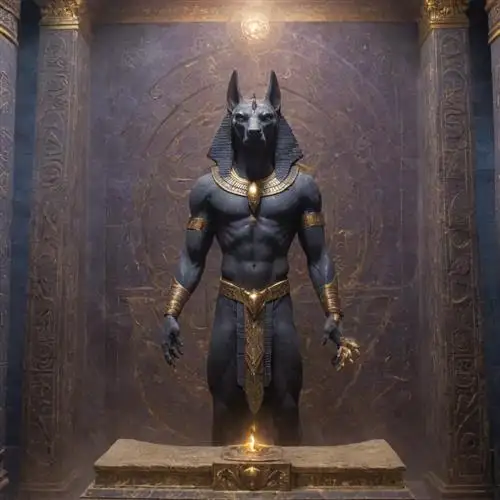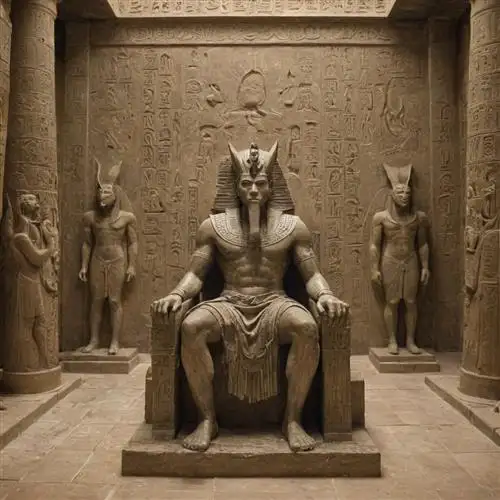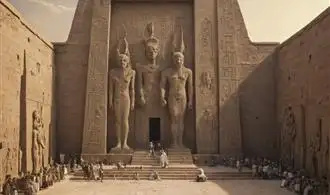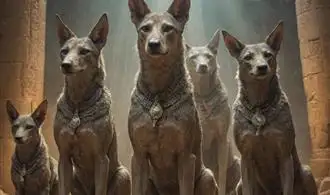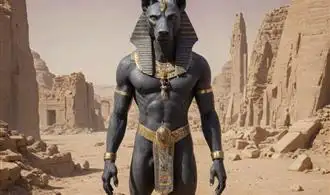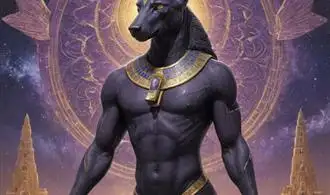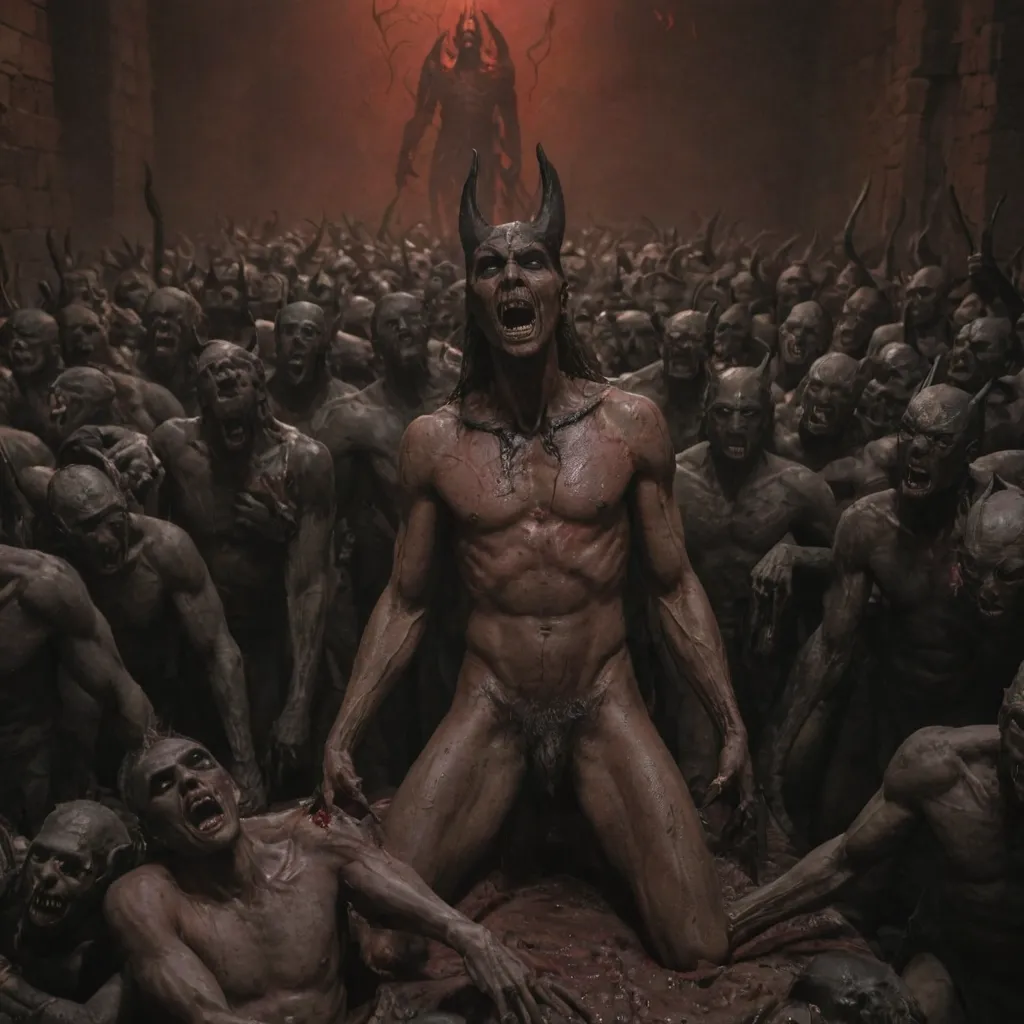
The Weighing of the Heart
The Weighing of the Heart is a central concept in ancient Egyptian mythology, particularly associated with the god Anubis and the journey to the afterlife. This ritual played a crucial role in determining an individual's fate in the afterlife, and understanding its significance can provide valuable insights into the beliefs and practices of ancient Egyptians.
In the Egyptian afterlife, the deceased's heart was weighed against the feather of Ma'at, the goddess of truth, justice, and cosmic order. This process, known as the "Weighing of the Heart," was overseen by Anubis, the jackal-headed god who was responsible for the embalming and protection of the dead. The outcome of this weighing ceremony was believed to be a reflection of the individual's moral character and the deeds they had committed during their lifetime.
If the heart was found to be heavier than the feather, it was considered unworthy and was devoured by the devouring monster Ammit, a composite creature with the head of a crocodile, the body of a lion, and the hindquarters of a hippopotamus. This condemned the individual to eternal damnation, as their soul would be unable to continue its journey to the afterlife.
However, if the heart was found to be lighter than or equal to the feather, it was considered pure and the individual was deemed worthy to proceed to the afterlife. In this case, the heart would be placed in a canopic jar and the individual's soul would be allowed to enter the realm of the dead, where they would be judged by the gods and potentially granted eternal life in the afterlife.
The Weighing of the Heart was not just a physical ritual but also a symbolic and spiritual one, representing the importance of living a virtuous and just life. It was believed that the heart, as the seat of the soul, contained the essential qualities of an individual, and its weight was a reflection of their moral character.
Navigating the Duat
The Duat, the ancient Egyptian conception of the afterlife, is a realm shrouded in mystery and intrigue. As the domain of the god Anubis, this complex and multifaceted underworld holds the key to understanding the Egyptian beliefs surrounding death and the afterlife. For those seeking to avoid the pitfalls and challenges faced by the deceased, a deeper exploration of the Duat is crucial.
At the heart of the Duat lies the concept of the soul's journey through the various regions and challenges that await. The deceased must navigate a series of gates, guardians, and trials, each with its own set of requirements and potential obstacles. Successful passage through these obstacles is essential for the soul's ultimate transformation and rebirth.
One of the primary challenges faced by the deceased in the Duat is the presence of monstrous and malevolent entities. These beings, often depicted as hybrid creatures or snarling beasts, serve as guardians of the various regions of the underworld. The deceased must appease or outwit these entities, using a combination of knowledge, ritual, and personal fortitude.
Another critical element of the Duat is the concept of the weighing of the heart. This ritual, presided over by Anubis, involves the weighing of the deceased's heart against the feather of truth. If the heart is found wanting, the soul faces the threat of being devoured by the fearsome creature Ammit, the "Devourer of the Dead." Careful preparation and adherence to ethical principles during life are essential for a successful outcome in this pivotal moment.
The journey through the Duat also involves navigating a series of waterways and bodies of water, each with their own unique challenges and significance. The deceased must ensure the proper rituals and offerings are made to secure safe passage across these aquatic realms, lest they risk becoming trapped or lost forever.
The Judgment of Osiris
The Judgment of Osiris is a pivotal aspect of Anubis's role in the Egyptian afterlife. As the god of the dead, Anubis was responsible for guiding the souls of the deceased through the process of judgment before Osiris, the lord of the underworld. This judgment was a critical step in determining the fate of the individual in the afterlife.
During the judgment, the heart of the deceased was weighed against the feather of truth, representing the balance between the individual's actions and the principles of justice and righteousness. Anubis played a crucial role in this process, overseeing the weighing and ensuring the fairness of the verdict.
If the heart was found to be heavier than the feather, it signified that the individual had lived a life of sin and wrongdoing. In such cases, the soul would be condemned to the devouring monster Ammit, a composite creature with the head of a crocodile, the torso of a lion, and the hindquarters of a hippopotamus. This fate was considered the ultimate punishment, as it meant the complete annihilation of the soul.
On the other hand, if the heart was found to be lighter than or equal to the feather, it indicated that the individual had lived a virtuous and righteous life. In such cases, the soul would be granted passage to the afterlife, where it would be welcomed by Osiris and allowed to join the blessed in the eternal paradise of the Field of Reeds.
Anubis's role in this judgment process was crucial, as he was responsible for guiding the soul through the various stages of the afterlife and ensuring that the verdict was just and accurate. His presence at the weighing of the heart was a testament to the importance of this ritual in the Egyptian belief system, and his vigilance and objectivity were seen as essential to maintaining the balance between the living and the dead.
The Afterlife Rewards
In the intricate tapestry of Egyptian mythology, the figure of Anubis stands as a pivotal guardian of the afterlife, responsible for guiding the souls of the deceased through the trials and tribulations of the underworld. As you delve into the realm of Anubis, it becomes evident that the rewards of the afterlife are not merely abstract concepts, but tangible rewards that can profoundly shape the journey of the departed.
One of the primary rewards associated with the afterlife in the Anubis tradition is the preservation of the physical body. Anubis, the jackal-headed deity, was tasked with the mummification process, ensuring that the deceased's physical form was meticulously prepared for the transition to the afterlife. This preservation was believed to be essential for the soul's continued existence, as the body served as a vessel for the spirit to inhabit in the next life.
Beyond the preservation of the physical form, the Anubis-guided afterlife offered the opportunity for the deceased to experience a sense of justice and balance. The famous "Weighing of the Heart" ceremony, where the heart of the deceased was weighed against the feather of Ma'at (the goddess of truth and justice), determined the individual's fate in the afterlife. Those whose hearts were found to be virtuous and pure were granted access to the eternal bliss of the afterlife, while the impure were subjected to the consequences of their actions.
Interestingly, the rewards of the Anubis-guided afterlife extended beyond the individual. The ancient Egyptians believed that the deceased could maintain their connections with the living, and even provide guidance and protection to their loved ones. Through rituals and offerings, the living could appeal to Anubis and the other deities of the underworld, seeking their assistance and blessings for the living.
The Perils of the Damned
Delving into the intricate and often foreboding realm of the afterlife, the perils associated with Anubis, the Egyptian god of the dead, serve as a potent reminder of the consequences that await those who stray from the righteous path. As the divine judge tasked with weighing the hearts of the deceased, Anubis held immense power over the souls of the departed, and his verdicts carried grave implications for those found unworthy.
One of the primary perils faced by the damned in the afterlife was the prospect of eternal damnation. According to ancient Egyptian beliefs, those who had committed grave sins or transgressions during their lifetime were subjected to a harrowing fate. Their hearts were weighed against the feather of Ma'at, the goddess of truth and justice, and if found wanting, they were condemned to a torturous existence in the underworld, their souls forever denied the blissful respite of the afterlife.
The process of this judgment was fraught with peril, as the deceased was required to pass through a series of trials and obstacles, each posing a unique challenge to their moral fortitude. The 7 Surprising Facts About Anubis Imagery reveals the intricate symbolism and significance of Anubis' role in this process, further underscoring the gravity of the situation faced by the unrighteous.
For those who failed to uphold the principles of Ma'at, the consequences were severe. Their souls were condemned to a state of eternal torment, forever removed from the tranquility of the afterlife. Some were believed to be subjected to gruesome punishments, such as dismemberment, decapitation, or even complete annihilation, their very existence snuffed out in a horrifying display of divine retribution.
The perils of the damned were not limited to the afterlife alone, however. Ancient Egyptians believed that the actions of the living could also have profound implications for the departed. Proper burial rituals, the inclusion of essential funerary goods, and the invocation of protective spells were all critical to ensuring the safe passage of the soul into the next world. Failure to adhere to these sacred traditions could result in the soul being trapped, unable to find rest or continue its journey through the afterlife.

